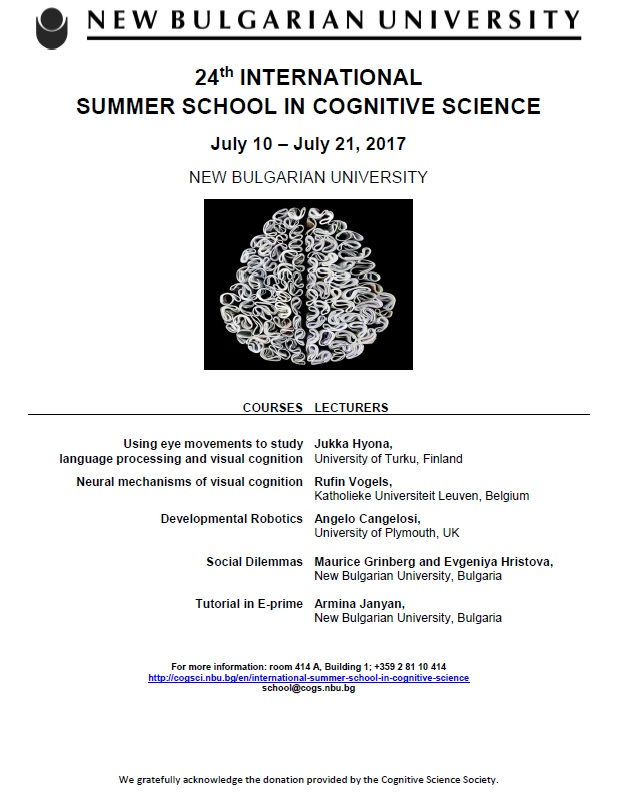International Summer School in Cognitive Science
- Jul 10, 2017
- 3 min read
Reading Metaphors We Live By and dipping my pinkie toe into the world of cognitive science made me want to jump right in and explore more. So, with the help of my mother, I started looking for programs in cognitive science and related fields that I would be able to participate in over the summer.
Unfortunately, cognitive science as an interdisciplinary study is not as developed as other scientific studies (chemistry, neuroscience, etc.) and there aren't many programs available to high school students in the United States.
Yet.
The skills learned through the study of cognitive science and the subjects involved - linguistics, psychology, computer programming, and philosophy - can be applied to some of the most rapidly expanding fields in the world.

Artificial intelligence is one such field - as our lives become increasingly digital, people are needed to design the technology used to build that connection between humans and the internet.

There's the side that deals with computer programming and working with the technology itself: creating devices and sensors that have built in speech-to-text technology, so-called "cognitive services" for developers and programmers, and so on.
But the tech-savvy people who work in artificial intelligence can't do it alone - they need to work with people who study the human brain and its interactions with society.
Technology has to be built to respond to and understand human thought. So we have to understand how and why people think the way they do. Which is where the psychology, linguistics, and philosophy comes in.
I'll continue this little tangent in another post.
Back to looking at summer programs.
My mother found a program by chance at New Bulgarian University in Sofia, Bulgaria. The program is a two-week Summer School in Cognitive Science, with lectures from professors and researchers from around Europe.

The summer school has been held annually for 23 years, this year being the 24th.
It runs from J
une 10th to June 23rd, which fits quite perfectly into my schedule. So I applied.
Applying in itself was a lengthier process than I expected. All that was needed was a CV (curriculum vitae), a statement of purpose, and a recommendation letter.
I had no idea what a curriculum vitae is, so I looked it up. It's basically a summary of your education, publications, qualifications, and previous occupations. I was at a bit of a loss for what to do, because I'm still in high school and I don't have any qualifications or publications or previous jobs.
My lack of experience and the fact that I'm not in college yet made me worry - there was no way that I would be accepted into summer school in cognitive science which was often attended by master's and PhD students.
But I wrote up a CV anyway, along with a statement of purpose, and asked Mr. Heidt for a recommendation letter.
And to my surprise, I got accepted!

I got accepted, and I also won one of the ten available scholarships to the summer school, which paid for the entire two-week experience (nearly $600).
I was absolutely elated!
This was a great chance to learn more about cognitive science, the field I'm thinking about pursuing in college, make international connections that I could maintain for years to come, and attend lectures by top European researchers and find out about the research that they had done.



































Comments